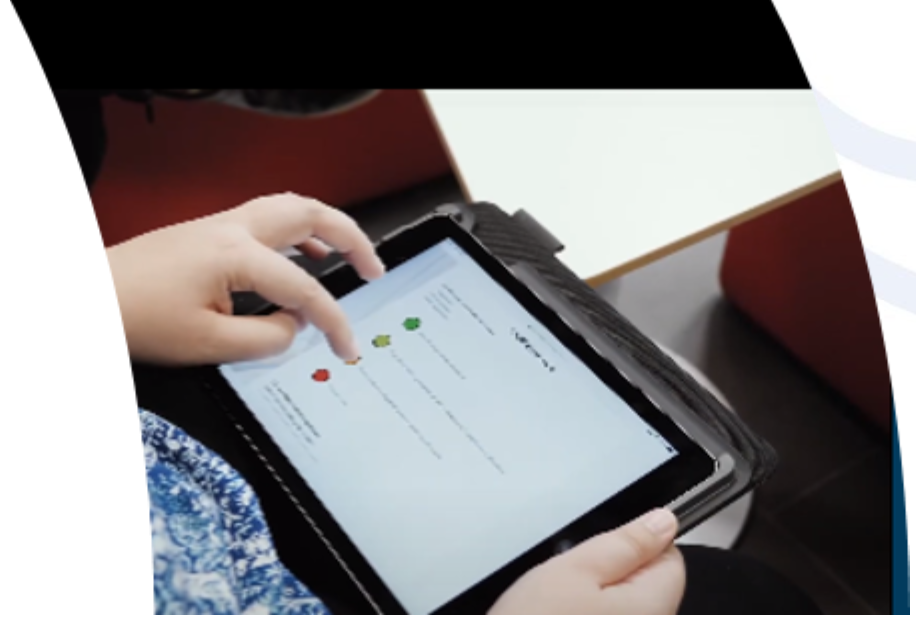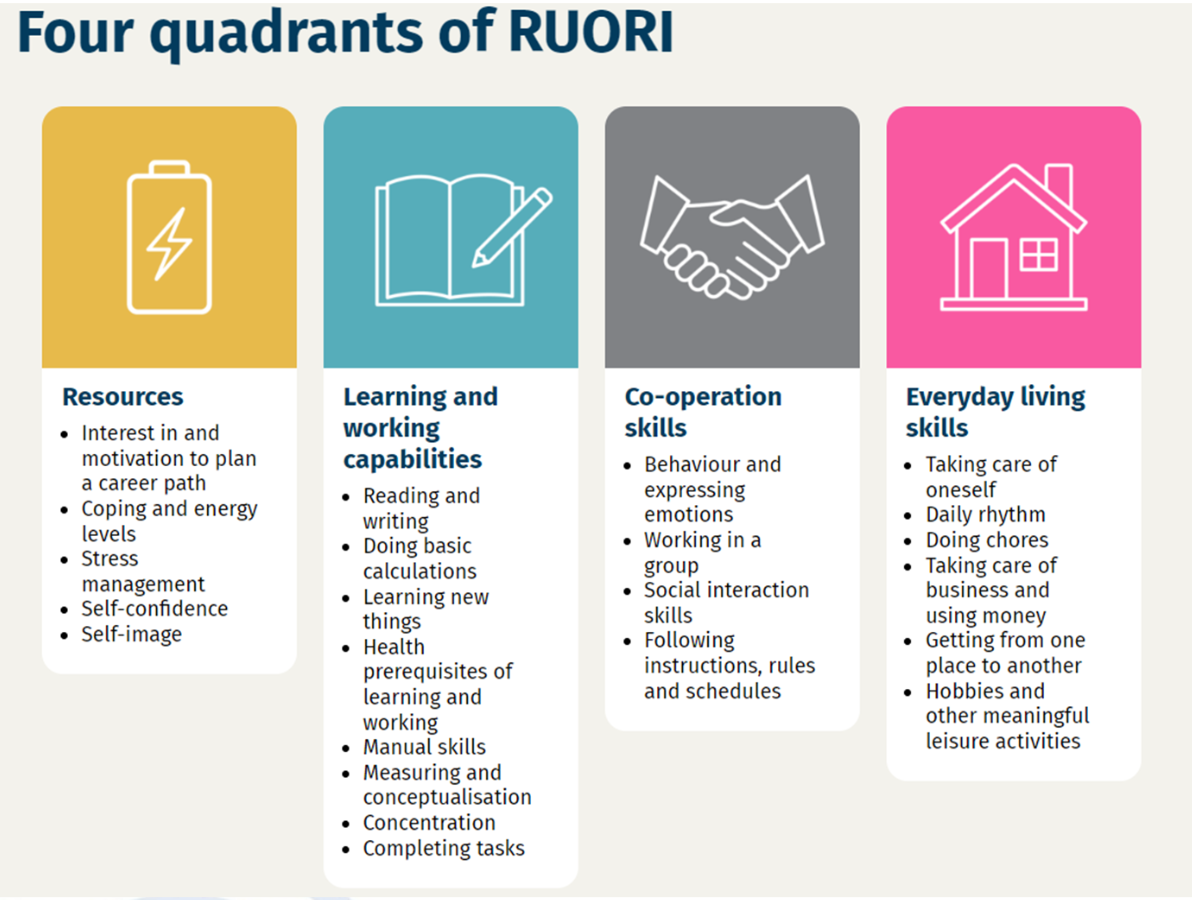RUORI Assessment Tool helps to develop learning paths and support services for students. RUORI assessment tool is a method for assessing functional ability and study skills in vocational studies. It is developed at Luovi Vocational College and is based on the World Health Organization’s international * ICF classification. With the help of the RUORI, the applicant or student can assess and identify their study skills, motivation, and suitability for a particular degree or education together with experts.
The RUORI assessment answers questions about work and study readiness and provides information about the need for support and guidance in studying. With RUORI, the client can assess and describe, together with experts, the need for special and demanding special support in studying. RUORI includes a self-assessment for the client, an assessment for the experts and a guidance discussion form. In addition, RUORI cards with pictures and questions can be used to support guidance.
The resource-centered assessment also considers the need for support for the applicant or student in studies and post-study employment. Central to the development of the RUORI has been customer orientation and ease of use. The assessment can be carried out in learning environments by working together with the student. The RUORI assessment can also be carried out during studies in different learning environments, such as workplaces. In this case, the methods and services that support the student’s ability to function can be tailored to suit each learning environment and support the student’s employment goals.
In the RUORI self-assessment, the client answers questions independently or, for example, together with a carer or teacher. See the self-assessment presentation page for more information and links to the questionnaires. The RUORI self-assessment is available in Finnish (Selko), Swedish and English.
The RUORI expert assessment allows you to describe, in a multidisciplinary way, the client’s functional capacity and the need for support and guidance in studies. The persons involved in the RUORI expert assessment are always agreed together. The expert assessment is available in Finnish, English and Arabic.
RUORI cards have questions and pictures about learning and everyday skills needed for study and employment. RUORI cards can be used to discuss learning and planning your studies and to identify and describe the support needs of the applicant or student
in their studies. The cards can be used in conjunction with the RUORI assessment method. You can use the electronic RUORI cards or order printed cards from the online shop Luovi Puoti




